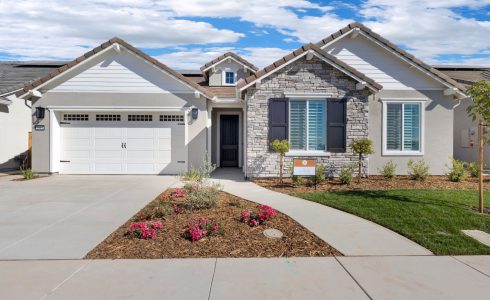
Buying a new home is an exciting milestone in anyone’s life, but it can also be overwhelming, especially when it comes to figuring out how much money is needed to make your dream of homeownership a reality. As a first-time homebuyer, it’s crucial to understand the various costs involved in buying a house so that you can budget accordingly and avoid any financial surprises along the way.
This guide will break down the costs, offer practical tips, and help you turn your dream of homeownership into a reality.
Understanding the Basics: What is the True Cost of a New Home?
Buying a home is a significant financial commitment, and it’s essential to understand all the costs involved. The sticker price you see on a property listing is just the beginning. Here’s what you need to know:
The Purchase Price: The most obvious cost is the purchase price of the home itself. This is the amount you agree to pay the seller to become the new owner. Remember: the purchase price is just for the home. It doesn’t include other expenses you’ll encounter along the way.
Closing Costs: Closing costs are fees associated with finalizing your mortgage. These can include appraisal fees, title insurance, escrow fees, and more. On average, closing costs can range from 2% to 5% of the home’s purchase price. For example, for a $600,000 house, you could expect to pay between $12,000 and $30,000 in closing costs.
Saving for a Down Payment: Strategies and Realistic Expectations
One of the most significant hurdles for first-time homebuyers is saving for a down payment. Here’s how to approach it:
How Much Should You Save: The amount you’ll need for a down payment varies depending on the mortgage type. Typically, conventional loans require a down payment of 20% of the purchase price, while some loans, like FHA loans, allow for lower down payments ranging from 3.5% to 10%.
The higher your down payment, the lower your monthly mortgage payments will be. It’s important to save up for a sizable down payment before starting your house hunt to increase your chances of getting approved for a mortgage and securing more favorable loan terms. Check out our guide on down payments.
Setting a Savings Goal: Once you know how much you need, set a realistic savings goal. Break it down into monthly or even weekly amounts to make it more manageable. Consider setting up a dedicated savings account for your down payment to keep the funds separate from your everyday expenses.
Creative Ways to Save: Look for creative ways to boost your savings. This could include selling unused items, taking on a side hustle, or cutting back on non-essential expenses. Some employers also offer programs that can help with down payment savings. Here are some additional ways to save for a down payment.
Other Costs to Consider: From Inspection to Moving Expenses
Beyond the down payment and closing costs, there are other expenses you’ll need to plan for:
Home Inspection Fees: Before closing on a new home, buyers should schedule a home inspection and appraisal to ensure that the property is in good condition and worth the asking price. Home inspections typically cost between $300 and $500.
Property Taxes and Homeowners Insurance: Once you own your home, you’ll be responsible for property taxes and homeowners’ insurance. Property taxes vary depending on where you live and can add hundreds or even thousands of dollars to your monthly housing expenses. Similarly, homeowners’ insurance is necessary to protect your investment in case of unforeseen events like natural disasters or accidents. Be sure to research property tax rates and homeowners’ insurance premiums in your desired location to budget accordingly.
Maintenance and Repairs: Owning a home comes with responsibilities such as regular upkeep, repairs, and upgrades that can add up over time. It’s a good idea to set aside 1% to 2% of your home’s value each year for maintenance and repairs.
Moving Expenses: Moving expenses are another overlooked cost when buying a new home. Whether you hire professional movers or opt for a DIY move, moving can incur significant costs such as packing materials, transportation fees, and storage units if needed. It’s important to budget for moving expenses in advance to avoid any last-minute financial stress.
The Journey to Homeownership
Buying your first home is a significant financial decision that requires careful planning and consideration of various expenses involved in the process. Understanding how much money you need to buy a house is crucial for first-time homebuyers so they can budget effectively and avoid any surprises along the way. By factoring in these expenses into your budgeting plan, you’ll be better prepared to navigate the homebuying process confidently and make your dream of homeownership a reality.
Ready to take the next step in finding your perfect home? Visit us at FCBHomes.com to learn more about our new home communities in Lodi and Riverbank as well as our available homes.
